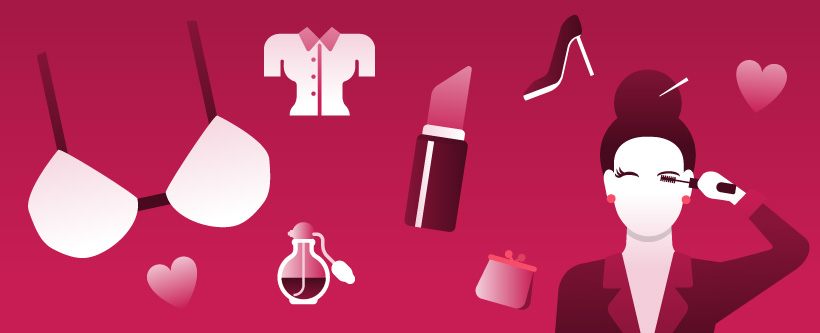To specialize in a content niche, freelance writers often cultivate expertise in or passion for an industry or topic. Other writers fall into a niche through luck or circumstance. Regardless of how a content creator finds a specialty, freelancers must evaluate earnings opportunities before fully committing to a niche.
Consider the Sandra Bullock movie, ‘Our Brand is Crisis’. Actually, don’t even consider the movie — just the title.
Ninety-nine percent of people saw the title and thought, “????”
One percent thought, “Crisis! Now that is a lucrative niche.” Those people all understand the value of finding one’s brand expertise, especially if it’s obscure, complicated, or politically fraught.
Most businesses specialize in one niche, or maybe a few as they expand. But marketers, consultants and creatives have a choice of being generalists or niche experts. There’s a camp that prefers the generalist approach — parachuting in, “deep diving” into materials, becoming an overnight expert just to get a job done.
Then there are the people who build an expertise over the course of years, and figure out a dozen ways to monetize it. There are people who saw a gap, and figured out a way to address it. And, there are people who turned their niche expertise into a content product and then created a retail line around it.
On the flip side, there are people, much to our dismay, who will label themselves as experts if they ever happen to sit in on a phone call where the subject matter was discussed. If they took a trip to Disney, they’re a travel expert. If they have an Instagram account, they’re an influencer. Buy into their sales pitch, and you’re guaranteed trouble.
Because here at ClearVoice, our brand is content, we’re looking today at people who have branded themselves as experts creating content for very specific industries. Some have launched brands of their own, while others quietly work behind the scenes to make deals and launch brands in their various industries. We also asked them for advice they’d give people looking to position themselves as an expert; and for tips to help brands avoid the niche arrivistes.
Experts on Finding Their Content Niche
Nora DePalma, Principal, O’Reilly DePalma
Expert in: Communications and marketing for the construction and building products industries
How did you find your way to your niche?
I discovered my niche via an early career agency experience with clients in the building products industry. From there, I was hired to work for a large building products manufacturer. I learned the importance of communications in helping homeowners through their buyer journey with such an infrequent purchase — kitchens, baths, roofs, siding — all big ticket items we might buy just a few times in our lifetime. While I started in the industry in the pre-Internet days, the web and content marketing has made it so much easier to be helpful to homeowners in the process.
What was the moment of outside recognition when you knew you’d achieved niche expert status?
I was pursuing a client and trying to get on the CEO’s radar… And then after speaking at an industry event, he came up to me and said he had to meet me!
What would you tell brands in your niche that are looking to hire a PR or content marketing firm, and wondering how specialized the partner needs to be?
It is not a realm for the uninitiated. Major home remodels nearly always have a mechanical system component to them. We call it “behind the walls.” Content and information needs to be both inspiring and technically accurate.
Also, it is a tough sector for PR, because it doesn’t “fit” into a lot of tried-and-true media opportunities. It’s not like radiant floor heating will be in anyone’s Valentine’s Day gift guides.
Michael Gitter, Founder & President of DoYouRemember, Inc.
Expert in: Nostalgia products and classic entertainment
How did you find your way to your niche?
I have always been a nostalgic person. I love remembering things I grew up with. It gives me a special feeling and remembering where I came from gives me a real connection.
What was the moment of outside recognition when you knew you’d achieved niche expert status?
When we reached 1 million followers on DoYouRemember’s Facebook page in less than a year, we knew this was more than just an idea.
How would you advise a person who’s trying to brand themselves as an expert in marketing a specialized lifestyle or CPG niche?
Without bursting your bubble, I want to be clear that there’s a big difference between hobby and vocation. Just being an expert does not necessarily mean there’s a big need for that expertise. And most ideas that are run past friends and family get a huge amount of encouragement and this often leads to disappointment. So that’s why I suggest the following:
I would first determine whether you want to turn this into a money-making proposition or not (a vocation). If you determine that there is in fact a market for it, and this is what you’d like to be doing either part or full time, for the foreseeable future, then you can get started.
I would focus my attention on who else doing something the same or similar, and I would immediately go about testing the revenue and market size potential. In my industry this is called an MVP (Minimally Viable Product). Once you have people willing to pay you for your expertise or ideas, you are on your way.
If it turns out that the market is just too small, or you can’t see a path to financial success, I may say to keep it as a passion and do something else to pay the bills.
Jene Luciani, bestselling author, ‘The Bra Book’ and ‘Get It! A Beauty, Style & Wellness Guide to Getting Your “It” Together’
Expert in: Bras
How did you find your way to your niche?
I was a journalist and reporter and started focusing primarily on style and beauty. Right around the time Oprah did her breakthrough “bra intervention” episode, I was assigned an article on bras. I realized through research that there was so much conflicting info out there and so many women crying out for help! I said to my editor, “Someone should write a book on bras!” And she said, “Do it!” So I did!
Three years later, it was published by BenBella Books, and private-labeled and placed in retail outlets worldwide by Fashion Forms. I became an advocate for women everywhere, through national appearances on shows like ‘Dr. Oz’ and ‘Today’. I even just did a TEDx Talk on the topic! I’ve been called the world’s first “bralebrity” and a “brapreneur.”
What was the moment of outside recognition when you knew you’d achieved niche expert status?
Receiving emails and messages asking for my help; and women coming up to me in stores and on the street.
What should a person trying to brand themselves as an expert do — and not do?
They should be authentic. They should NOT try become an expert in anything that they’re not personally passionate about, or that is not true to themselves. I was personally passionate because I developed as a teen with a breast deformity, and struggled with it (and bras) for many years. This drove me to want to help other women who were also struggling.
Doug Newcomb, President and Co-founder of C3 Group, LLC
Expertise: “Connected car” technology
How did you find your way to your niche?
In a way, it found me. I’d been covering car technology for a long time — in fact this is my 30th CES. So just kind of being there, in the sense that you have to show up, but also stay in the game. Gaining experience, reputation, and relationships. The space is very crowded now, but ten years ago, there weren’t a lot of people in it. I have a perspective that’s different than the other people: I see the bigger picture; the arc of the industry.
What was the moment of outside recognition when you knew you’d achieved niche expert status?
A milestone was when I did the first Connected Car Expo at the LA Auto Show in 2013. A lot led up to it, but that was very validating. I put together an amazing conference that was very valuable to people.
What would you say to someone who is a recent arrival to a growing niche industry, and wants to position themselves as an expert?
When I walk around with investment bankers, giving a tour at a major expo like CES, I don’t need to tell them “So and so company is doing this,” — i.e. giving them basic news and bio points they can read in the official literature. They need the WHY; and how it relates to the other companies; and they need an understanding of the connections, partnerships, and context. Also, what does all of this this mean to consumers? So they can make informed investment decisions .
If you don’t know people, players, issues, context but only facts available on brand collateral, you’re not an expert.







